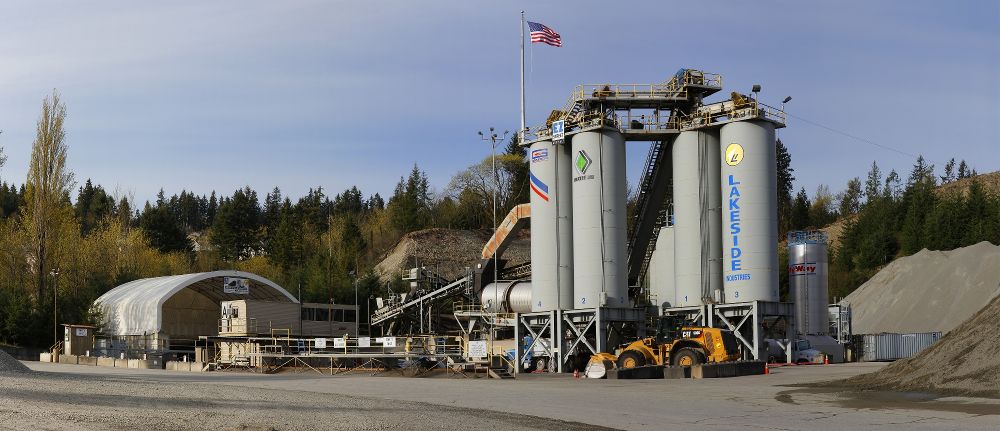
Seattle’s Chester Morse lake and 91,000 acre watershed at the headwaters of Cedar River is off-limits to visitors, ensuring pristine drinking water for Seattle customers. Photo credit: City of Seattle

An asphalt plant has been approved by King County upstream of Renton’s municipal water wells. The asphalt plant will disperse treated surface water into a dry well in the ground, above Renton’s aquifer.
Washington State has granted cities unique power to buy land outside their jurisdictions to protect their municipal water supplies, even from unwilling sellers through use of eminent domain. Renton should consider using this authority to buy the proposed Lakeside Industries Asphalt Plant site, in order to protect both the Cedar Valley Aquifer and the Cedar River. If Seattle was in our shoes, they would have already done this.
Seattle has purchased 91,000 acres in their Chester Morse Lake watershed in the uplands of the Cedar River to protect their water supply. Seattle won’t even let hikers on this property, as they feel the risk of contamination is too high.
Renton’s water comes from wells in the Cedar river basin, downhill from Seattle’s water supply. Renton draws water from the Cedar Valley Aquifer, which is about 100-300 feet beneath the earth’s surface. The aquifer is refilled continuously by groundwater seeping in through the valley’s uplands. A layer of silt and clay generally prevent the Cedar River water and the Cedar Valley aquifer water from mixing, although no one can know exactly what is happening underground.
With King County’s decision to allow an asphalt plant in the Cedar River basin, just a mile or so upstream of Renton’s municipal wells, Renton should take a page from Seattle’s playbook and exercise our land-purchase authority to protect our water supply.
There have been studies and discussion about whether runoff from the asphalt plant can get into the Cedar River; Lakeside Industries consultants says it won’t happen because they are capturing and treating runoff (potentially containing tar, gas, oil, and other industrial contaminants), and then purposefully infiltrating the treated water into the ground through a new dispersion system. i.e. they will intentionally inject their treated run-off into the ground above our aquifer.
While this system generally keeps the treated water out of the Cedar River, there’s no way to be completely certain that it won’t get into the Cedar Valley Aquifer. In fact, for many years, Water District 90, the water purveyor serving East Renton and regions east of our city limits, has been very concerned about this exact piece of property introducing contamination into the aquifer. This report from 2014 (section 4.2.2, page 15) describes the concerns regarding the former “Sunset Materials” site, which is the now site of the proposed asphalt plant.
Ask yourself; Would Seattle allow Lakeside Industries Asphalt plant to be placed in their Chester Morse watershed, where they won’t even allow hikers today? If they would not allow it, why does Renton need to allow an asphalt plant to inject industrial runoff water into the ground upstream of our drinking water wells?
For perspective, Irvine California is going to spend $360 million dollars to buy an existing asphalt plant, just so the city can close it down and improve the air quality in their community. Lakeside Industries paid around $12 million for their site on the Cedar Valley Aquifer. Renton’s purchase of this site would be a bargain compared to Irvine’s, about 1/30 the cost that Irvine is going to pay. And Renton’s purchase would help protect our water supply, a fundamental need for safety of our city.
After a purchase, the city could seek full or partial reimbursement via a Water Quality Grant from the Washington State Department of Ecology, which gives out between $100 Million and $200 Million every year for projects that protect rivers and streams. Several streams traverse the site in question before entering the salmon-bearing Cedar River; this project should be a top contender for funding. There are many other grant sources of income as well.
Too often, Renton finds itself pleading in court for fair treatment, when we could have used power already granted to us to protect our vital interests. This is one of those cases. Email your council and encourage them to pursue the purchase of the Lakeside Industries Asphalt Plant site, to protect our water supply. Send email to council@rentonwa.gov
Thanks to Renton resident Ben Johnson for working with me to develop this approach. Please see Ben’s comments on my previous blog entry for more of his thoughts on this topic.

Recent Comments